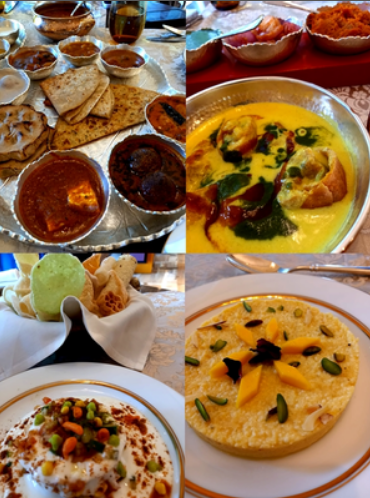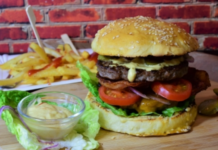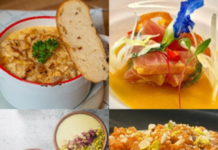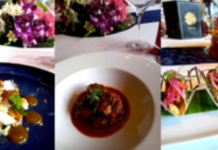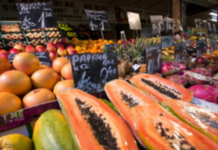By Sourish Bhattacharyya
New Delhi– It is one of those unresolved ironies. For the world, Marwari food is synonymous with a vegetarian, no onion-no garlic-no tuber fare, but Rajasthan’s rugged Marwar region is equally famous for its robust non-vegetarian cuisine with game meat, notably wild boar, ruling the tables of the Rajput royalty.
The only way one can explain this dichotomy is that Marwar, though famous for brave kings and warriors who were hearty non-vegetarians, became known as being strictly vegetarian when the trading class of this region, particularly those from Churu Jhunjhunu and Sikar, moved to other parts of the country and gained control over the levers of business and finance. They became famous everywhere as the ‘Marwaris’.
It is their cuisine that Abhilasha Jain has been serving over the past ten years to her growing clientele across her home base, Gurugram, and Delhi, from her 1,000-square-foot cloud kitchen. And the brand she helms is appropriately called ‘Marwadi Khana’.
Jain, a homemaker who was born in Bhilwara, studied in Ajmer and got married to a software professional in Jaipur, started modestly on Facebook, becoming active in foodie groups that were sprouting all over the social networking site in the early 2010s.
She acquired a formidable social media following because of her recipes and very soon, people started placing food orders with her.
Those were the early sparks that lit the fires of the ‘Marwadi Khana’ kitchen and Jain quickly realised that her home kitchen was too small to handle the kind of orders she was getting, from corporate meals in Goa to house-warming parties at Camellias, the most exclusive address in Delhi-NCR, to people hungry for good food during the Navratras.
With her reputation as a dependable home chef with sound business operations who delivers freshly cooked vegetarian meals across Delhi-NCR — her WhatsApp channel has 10,000-plus phone numbers of satisfied repeat clients today — she was going to draw the attention of five-star hotels.
Well, she did get invited by The Leela Ambience Gurugram’s fashionable Indian restaurant, Diya, where she has been presiding over a Marwari food pop-up, which will continue till Sunday, May 26. And what a treat she has laid out.
Jain could have stuck to a familiar script and done the dal-baati-choorma routine, followed by kair-sangri and gatte ki sabzi, but her touches of innovation are what make her spread stand out.
The honeycombed ghevar, a dessert associated with Teej during the monsoon, ends up in a chaat; the nibbles, from the soft and crunchy papad paneer rolls to kachche kele aur badam ke kabab (a Navratra favourite because of the injunction against eating potatoes), are a meal by themselves; the sangri, or stringy desert beans, go into koftas (a favourite, Jain told us with visible pride, of Mewar’s popular royal, Sriji); the kair, or desert berries, end up with cashew; and makhana, or fox nuts, are paired with grapes to make a delicious sabzi.
Jain left us gobsmacked with her kadhi kachori and mirchi bada chaat, a street delicacy that brings back memories of her school days in Ajmer, and her rendition of Jodhpur’s savoury gulab jamun ki sabzi.
Of course, there were the hardy perennials that no Marwari spread can miss — three kinds of baati (plain, stuffed and Bafla) served with ‘panchmela’ dal and different varieties of choorma, including the jaripalla packed with khoya, dry fruit and saffron, as well as the simpler options made with atta and besan. Then there were the breads, namely, the ‘tikkad’, floral-shaped thick bread, and the unputdownable Bikaneri paratha stuffed with ground roasted dal.
For dessert, the choice was between makhane ka kheer and the tempting aam kalakand, a complete reinvention of the kalakand flavoured with mango. No points for guessing. We ended a soul-satisfying meal with the latter and just couldn’t stop digging into it!
Abhilasha Jain has opened up a new world of tastes, textures and flavours. If her WhatsApp channel now has one new member, it is because of the lasting impression her food has left on our edible memory. (IANS)


